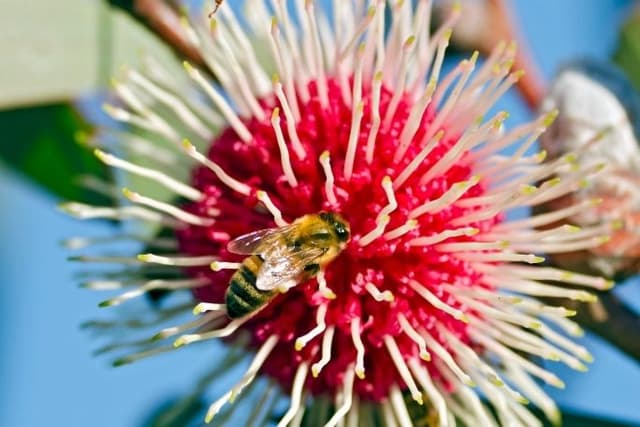
Beeing Curious
Lesson1 of 10 in this unit
PrimaryYear 5 - 6EnglishScienceEnvironmentalBiodiversityConservationSustainability
Summary
Lesson guides and printables
Lesson Plan
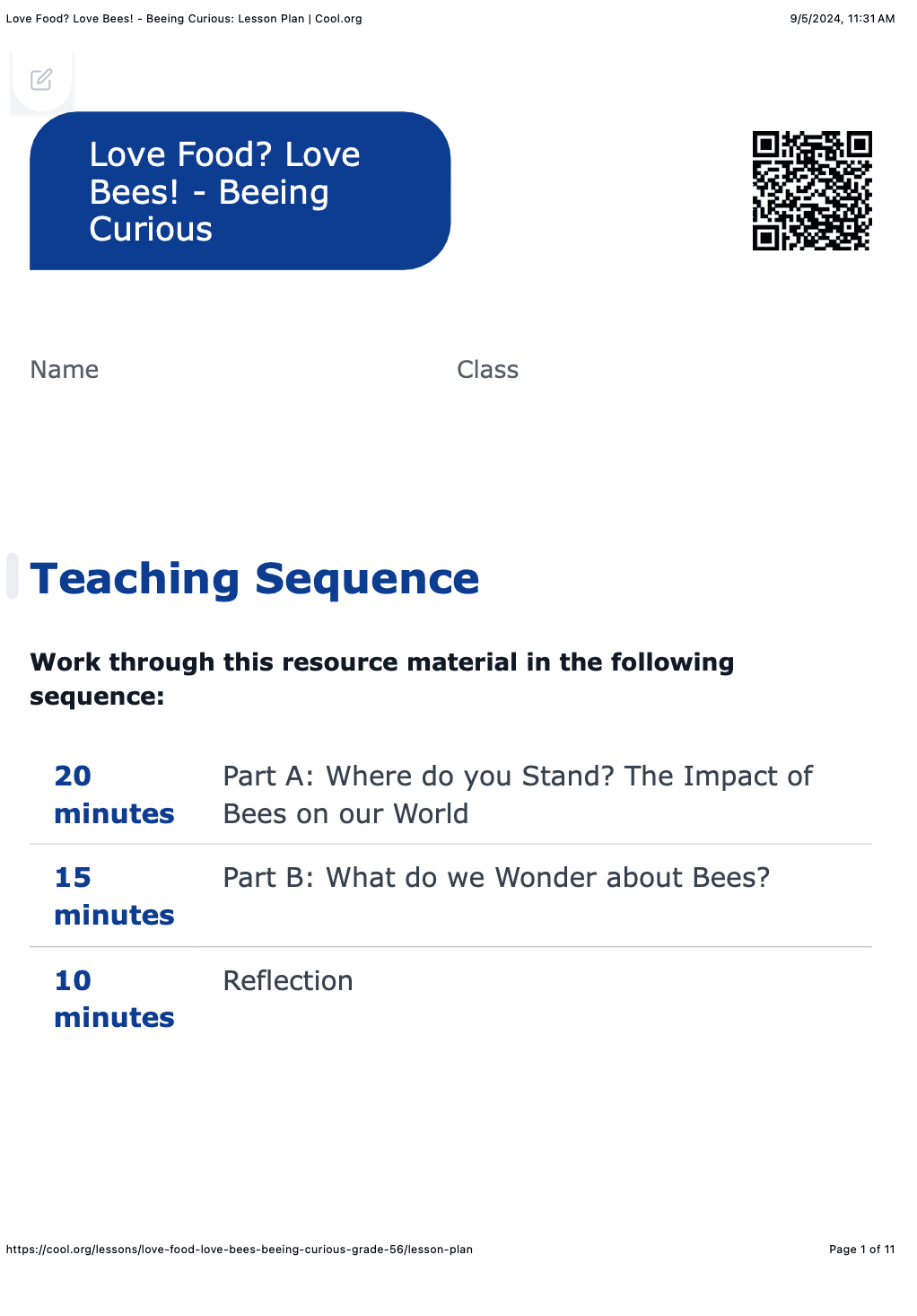
Student Worksheet
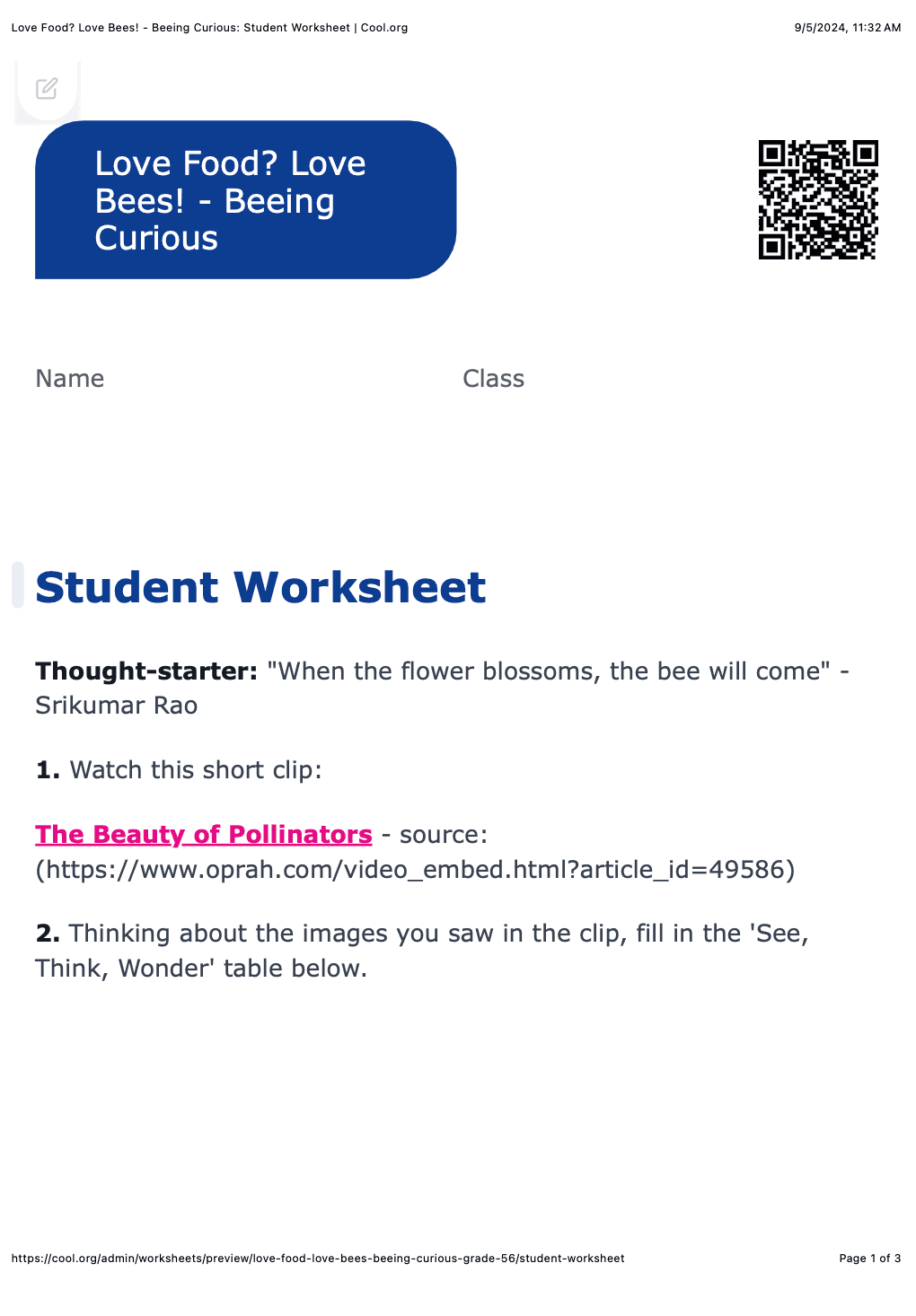
Teacher Content Info
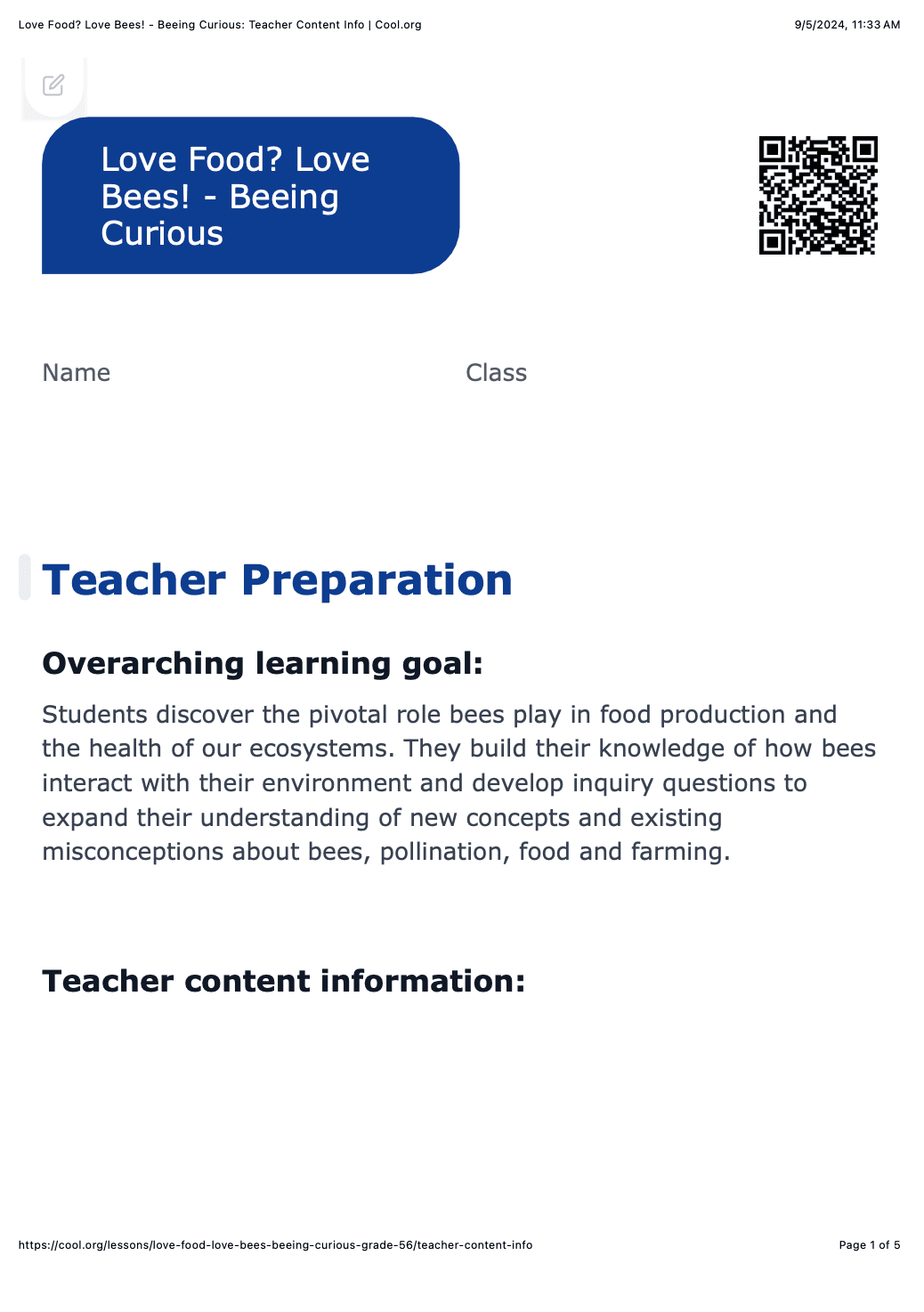
Hive of Reflection Template
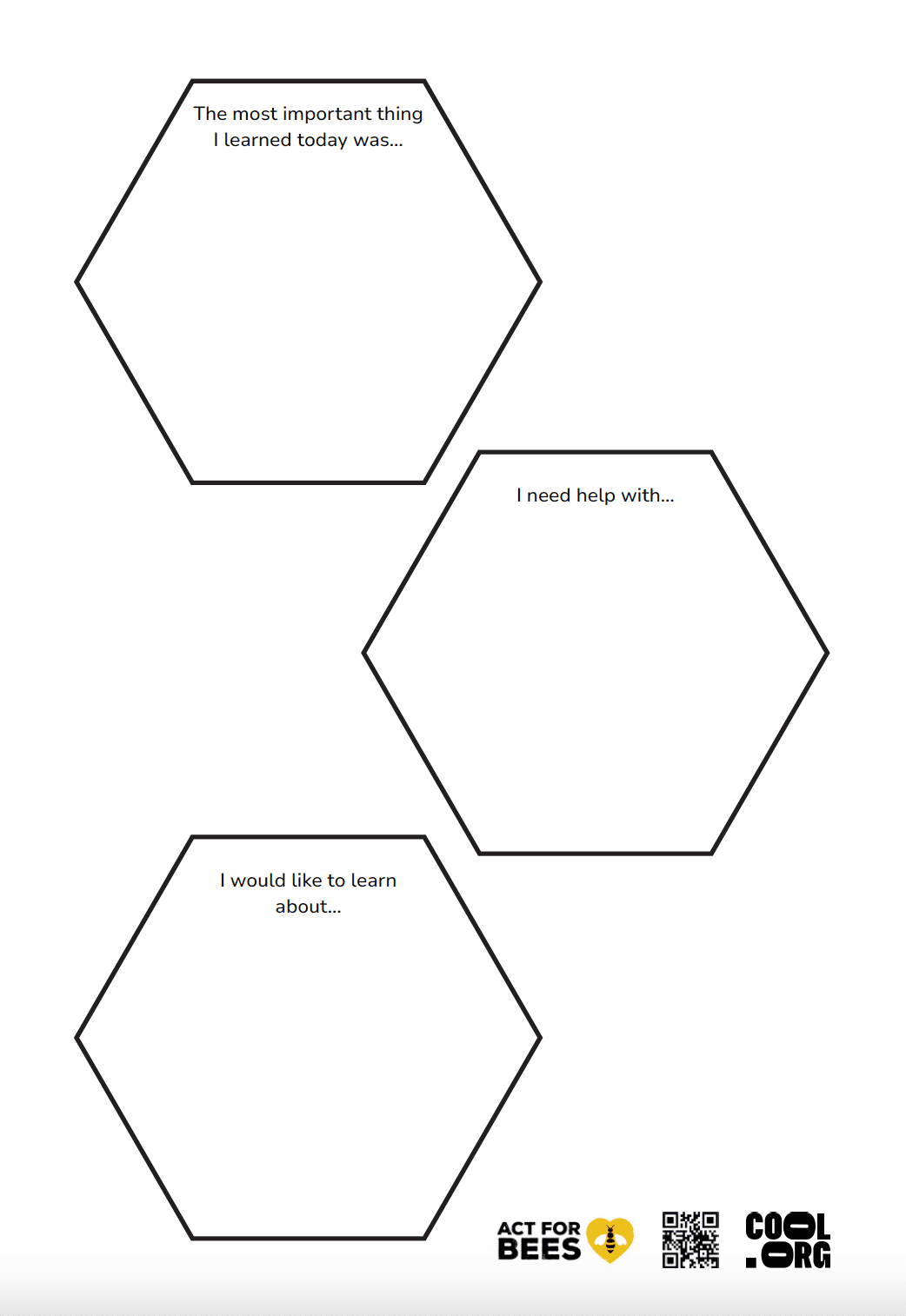

Lesson Plan

Student Worksheet

Teacher Content Info

Hive of Reflection Template
